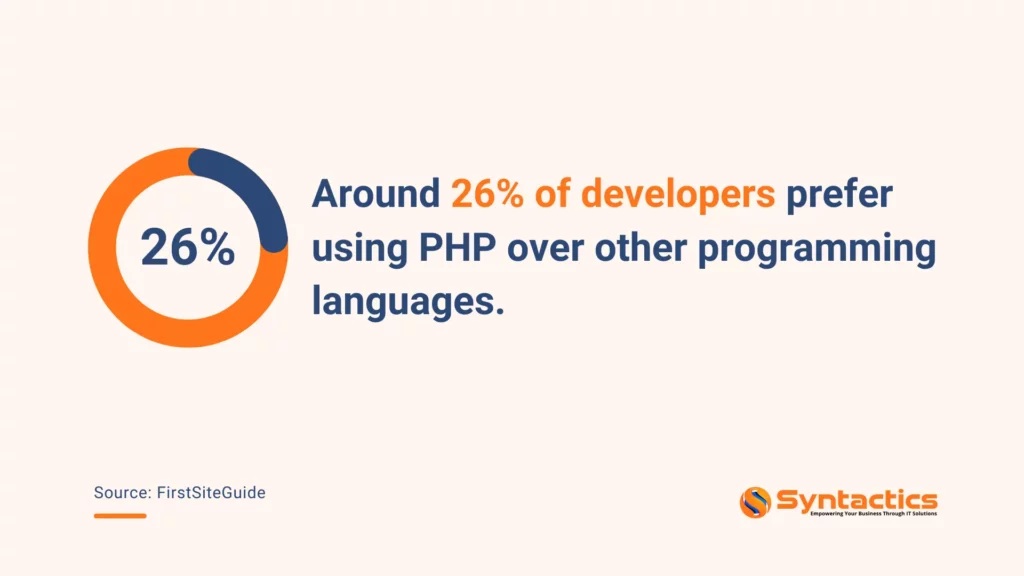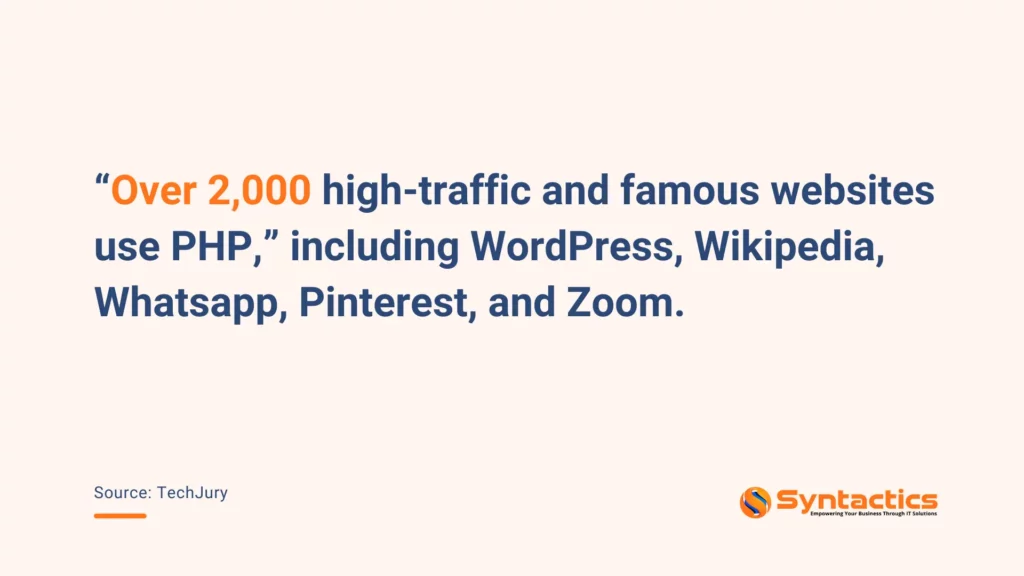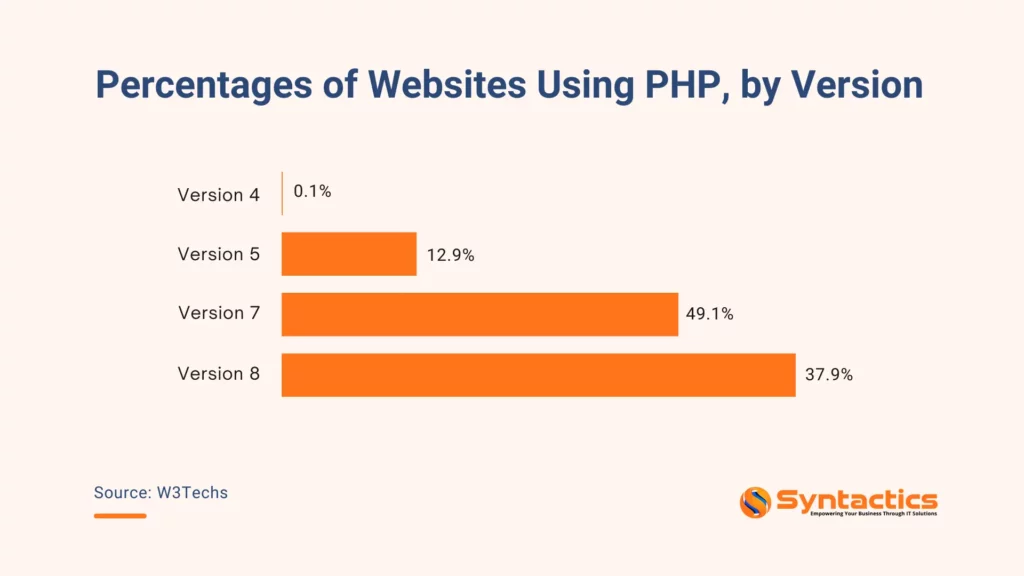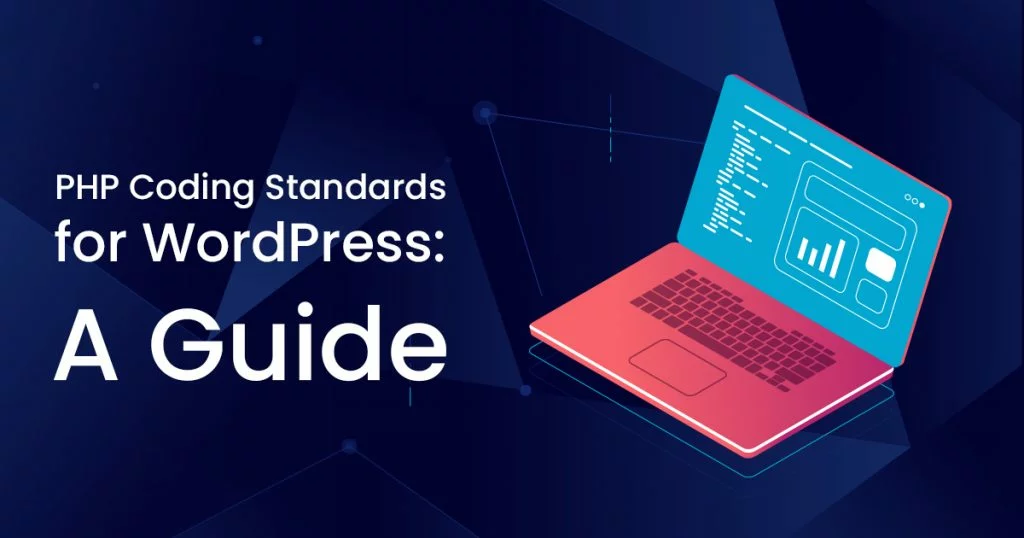
Debugging and Problem-Solving Strategies for a PHP Developer
PHP powers countless websites and web apps on the Internet. As a widely-used scripting language, it’s essential for creating dynamic web content and interacting with databases. It’s one of the many reasons why business owners hire a dedicated PHP developer to build versatile web projects. However, like any programming language, PHP comes with a few challenges.
PHP professionals often encounter issues ranging from syntax errors to complex logic and database problems. This makes effective debugging and problem-solving crucial for delivering reliable, high-performing web projects.
Through debugging, developers can resolve immediate issues like bugs while enhancing the overall codebase. Meanwhile, problem-solving minimizes development delays, boosts productivity, and ensures high-quality results.

Source: FirstSiteGuide.
Managing Common PHP Challenges in Web Development
Seasoned PHP professionals often face challenges that can hinder development and address these by implementing debugging techniques, advanced problem-solving strategies, and best practices. This way, a developer can streamline workflows, resolve issues efficiently, and deliver high-performing websites and web applications.
Before tackling these challenges, it’s critical to understand the types of common PHP issues.
4 Types of PHP Challenges:
According to PHP Usage Statistics, 89,246,361 websites use PHP, making it one of the most widely-used scripting languages in web development. But, it still comes with challenges that developers must navigate to ensure seamless functionality.
Here are four common kinds of PHP challenges:
Syntax and Parse Errors
Syntax errors happen when code doesn’t conform to PHP’s syntax rules, such as missing semicolons, unclosed brackets, or incorrect keyword usage.
Meanwhile, parse errors are a type of syntax error that occurs when the PHP parser fails to understand the code’s structure, preventing the script from running entirely.
Logical Errors
Logical errors occur when the code executes successfully but produces incorrect results due to flawed logic in the following:
- Loops;
- Conditionals, or
- Function implementations.
Runtime Errors
Runtime PHP errors arise while the code is running. They’re often caused by issues like missing or non-existent files, incorrect configurations, or resource limitations.
Database-Related Errors
This type of error occurs when interacting with databases and can include:
- Poorly constructed Structured Query Language (SQL) queries;
- Incorrect table structures;
- Mishandling data formats, etc.

Source: TechJury.
Debugging Strategies for PHP Developers
Debugging improves code reliability by resolving immediate issues. A systematic approach saves web developers time and prevents frustration.
Here are essential debugging strategies for PHP projects:
Using error_reporting and display_errors
Understanding the hierarchy of PHP errors allows developers to prioritize which concerns to fix. Fortunately, PHP’s error_reporting and display_errors functions help identify syntax and runtime issues.
error_reporting allows developers to control which errors are displayed. Enabling it in the PHP configuration makes it easier to catch potential errors.
On the other hand, display_errors enables output visibility during debugging. The function displays error messages during development, making it vital for Quality Assurance.
Leveraging PHP Debugging Tools
Integrated debugging tools provide developers with features such as breakpoints, stack traces, and real-time code evaluation.
Here are some tools that make it easier to track down complex bugs:
- Xdebug — a PHP debugging extension. Offers stack traces, breakpoints, and function analysis.
- PHP Debug Bar — provides real-time debugging insights for web apps. Displays queries, variables, and performance metrics.
- PhpStorm or Visual Studio Code — enable step-through debugging to examine code execution line by line.
Using var_dump(), print_r(), and error_log()
Built-in PHP functions like var_dump() and print_r() output variable data, which is vital for inspection. They allow developers to understand what’s happening during script execution.
Meanwhile, error_log() writes error details to log files for later analysis. As such, it preserves the user experience while maintaining detailed records.

Source: W3Techs.
Problem-Solving Strategies for PHP Developers
Debugging goes hand-in-hand with problem-solving, and adopting a methodical approach is crucial for efficiently resolving complex issues, streamlining development, saving time, and enhancing productivity.
Here’s how a developer can address challenges in PHP:
Understanding the Problem
When faced with an issue, a PHP developer will start by thoroughly analyzing it. They’ll examine error messages, behavior, and code structure to understand its root cause. The context will be crucial in replicating the issue in a controlled environment to identify triggers.
Analyzing and Hypothesizing
At this stage, developers analyze the code to spot patterns and inconsistencies and then formulate hypotheses about possible causes for the issue. Afterward, they can iteratively test hypotheses until they find the root cause.
Using PHP Documentation and Community Resources
Developers can consult official PHP documentation, such as on PHP.net. The PHP manual provides comprehensive explanations about functions, syntax, and usage examples.
Also, forums like Stack Overflow and GitHub Discussions offer invaluable insights on troubleshooting advice from a robust community of PHP developers.
Advanced Debugging Techniques
Advanced strategies are necessary for tackling more complex issues in PHP. Here are some approaches developers can follow:
Debugging with Unit Testing
Unit testing — which is a form of functional testing — validates the functionality of specific code segments, ensuring that changes or updates to its functions and methods don’t introduce new bugs.
As a result, developers and QA testers can ensure that each part of the project behaves as expected. Developers can also leverage PHPUnit to automate the testing process, allowing for efficient and early detection of bugs.
Debugging Database Issues
Developers can analyze SQL logs to identify failed queries and optimize database interactions.
They can use tools like MySQL Workbench or phpMyAdmin to analyze database queries and pinpoint problems such as incorrect joins or missing indexes. Alternatively, they can manually test queries via MySQL Workbench to isolate database problems.
Debugging Performance Issues
It’s necessary to identify performance bottlenecks by profiling PHP code execution. Developers can utilize profiling tools like Xdebug, Blackfire, or New Relic to identify bottlenecks in projects. They can optimize slow queries and scripts to improve performance.
Best Practices for Preventing Bugs
Prevention is often the best strategy in debugging PHP projects. Here are some best practices for reducing the likelihood of bugs:
Writing Clean, Readable Code
Overly complex code structures are likely to introduce errors into a project. Therefore, professional PHP developers consistently follow PHP coding standards and PSR-12, which is the Extended Coding Style Guide for PHP.
These further ensure consistency and readability, minimizing the possibility of introducing errors.
Using Version Control (Git)
PHP developers can leverage version control systems such as Git. It enables them to track changes, identify regressions, revert to previous versions, and collaborate efficiently.
Regular Code Reviews and Pair Programming
Code reviews are vital for spotting potential issues early. In addition, developers can collaborate with peers or team members with shared expertise to identify issues and improve code quality.
As a result, developers can catch errors before the production stage.
Conclusion
PHP developers navigate a wide range of challenges, from syntax errors to complex performance bottlenecks. This makes debugging and problem-solving critical components of web development.
Web developers use advanced debugging tools and structured problem-solving approaches to effectively resolve issues. As a result, they can save time and deliver robust and reliable PHP projects.
Frequently Asked Questions About PHP Development
What is PHP used for in web development?
PHP (Hypertext Preprocessor) is used in web development for creating the following:
- Websites and web applications;
- Application Programming Interfaces (APIs);
- Content Management Systems (CMS) platforms;
- eCommerce platforms;
- Social networking sites;
- Email and newsletter systems;
- Gaming apps, etc.
What are the top PHP frameworks?
The top PHP frameworks include the following:
- Laravel
- Symfony
- CodeIgniter
- CakePHP
- Yii
- Phalcon
- FuelPHP
- Laminas
- PHPixie
- Slim
How do PHP frameworks help in development?
PHP frameworks like Laravel, Symfony, and CodeIgniter help in development by:
- Providing pre-built libraries for common functionalities.
- Enforcing Model-View-Controller (MVC) architecture to ensure clean code organization.
- Enhancing security to safeguard against common vulnerabilities.
- Speeding up development with tools like Object-Relational Mapping (ORM) and route management.
How does PHP compare to other backend languages like Python or Node.js?
Here’s how PHP compares to other backend languages:
- PHP is more beginner-friendly than Python or Node.js.
- PHP is best suited for small to medium projects, while Node.js is perfect for high-traffic ones.
- PHP has a robust community and extensive support resources.


















Comment 0